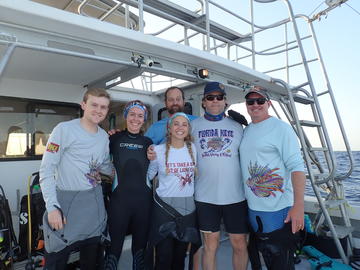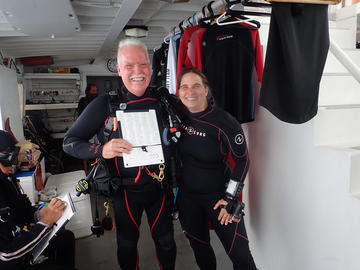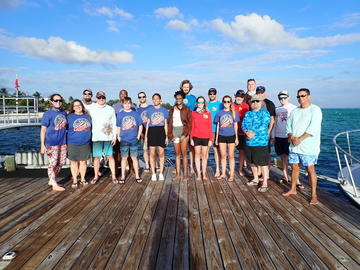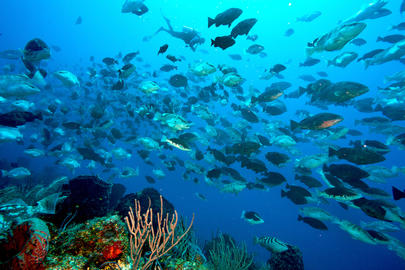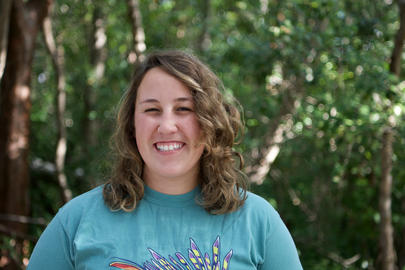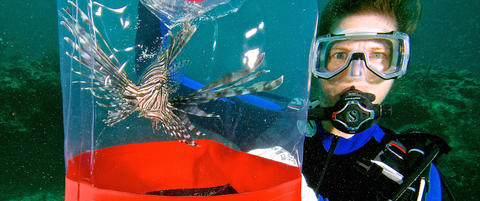As part of the Grouper Moon Project in Little Cayman, Cayman Island, this study used the sound produced by Nassau Grouper, Red Hind, Black Grouper, and Yellowfin Grouper to monitor the positions of these fish during the Nassau grouper spawning event that occurred in 2017. By using fish sound recorded by multiple instruments, we were able to monitor the presence and location of these fish before, during, and after the spawning. These continuous and overnight records added valuable observations to the limited period of times when divers are able to survey the area.
The Salish Sea in Washington and British Columbia is home to hundreds of fish species, and REEF citizen scientists play an important role in documenting and monitoring the health of fish populations in this biologically diverse region. This paper shows that the REEF Volunteer Fish Survey Project helped monitor more than half of the total fish species known to occur in the Salish Sea.
Our Grouper Moon Project team returned to the Cayman Islands around the full moon in February for another month of research on the Nassau Grouper spawning aggregation on the west end of Little Cayman. Because this year was a "split moon" year, we weren't quite sure whether the major spawning activity would happen in January or February.
We are excited to honor Dennis Bensen as 2021 REEF Volunteer of the Year. Dennis joined REEF in 2001, and quickly became an avid REEF surveyor as part of the Volunteer Fish Survey Project (VFSP). Through the years, he has earned Expert level surveyor status in both Hawaii (HAW) and the Tropical Western Atlantic (TWA) survey regions, and he is one of the few surveyors who has conducted REEF surveys in most (7) of REEF’s 10 survey regions worldwide. After living in New York for decades, Dennis moved to the Big Island of Hawaii when he retired in 2015.
This year marks the 20th anniversary of the Grouper Moon Project, and we are excited to report that our team was once again able to get into the field after missing last year due to COVID-19 restrictions. For ten days around the January full moon, our team conducted research to document the Nassau Grouper spawning aggregation on the west end of Little Cayman - the largest and one of the last known aggregations of these endangered reef fish.
We are very excited to introduce the newest member of the REEF Team, Dr. Rachel Walls. Rachel began working with REEF in January 2022, and will continue ongoing research started by previous REEF Research Associate, Dr. Dan Greenberg. This body of work seeks to leverage the extensive REEF Volunteer Fish Survey Project dataset by asking fundamental and applied questions in fisheries science, marine ecology, and conservation biology.
Grouper Moon season is here! REEF scientists, partners from Scripps Institution of Oceanography and Oregon State University, and volunteers are gearing up for the annual field effort of the Grouper Moon Project, a collaborative research effort with the Cayman Islands Department of the Environment (CIDOE). 2022 will be the 20th year of this important project, which studies one of the largest and last known spawning aggregations of Nassau Grouper in the Caribbean. During winter full moons, thousands of grouper gather in one location for 7-10 days to spawn.
We are excited to welcome Alexa "Lex" Bryant to the REEF Team as Conservation Science Associate. Lex joined the staff at the beginning of 2022 and is based at the REEF Campus in Key Largo. She grew up outside of Boston, where she started her marine science journey. She was certified to dive when she was 14, exploring the New England waters. Around the same time, she started working aboard the F/V Erica Lee II out of Newburyport, MA, and spent her summers teaching marine science. Lex eventually worked her way up to First Mate and started her commercial fishing career.
Managing invasive Indo-Pacific lionfish (Pterois volitans and P. miles) in the Western Atlantic Ocean is beyond the capacity of natural resource organizations alone. In response, organizations have mobilized members of the public and citizen scientists to help. The authors used a structured survey to assess the activities and perceptions of 71 organizations that engage the public and citizen scientists in lionfish research and management throughout the invaded range of the Western Atlantic.
A new scientific paper with results from REEF's Invasive Species Program research was recently published in the journal Conservation Science and Practice. The findings shed light on the factors affecting invasive lionfish intervention success and efficiency and how to best incorporate these findings into local management for invasive species. As part of a multi-year study with funding from NOAA Coral Reef Conservation Program and others, REEF and partners coordinated regional efforts by divers to cull invasive lionfish on 33 U.S.

